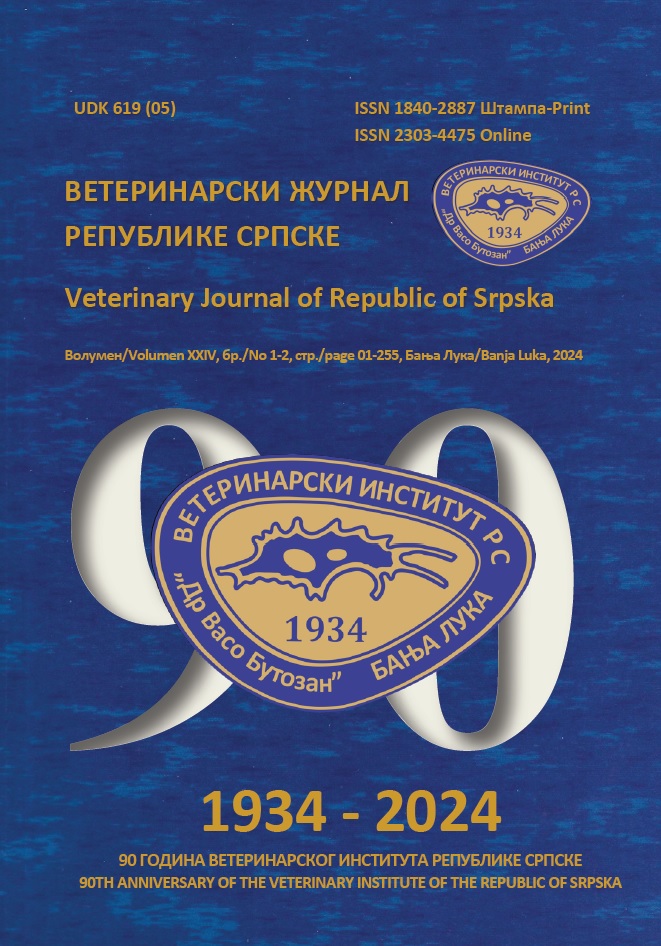EFFECTS OF MENTHOL AND MONEPANTEL ON THE CONTRACTIONS OF THE ISOLATED NEUROMUSCULAR PREPARATION OF ASCARIS SUUM
DOI:
https://doi.org/10.7251/VETJEN2401013MAbstract
Parasitic nematodes in animals lead to serious health disorders, high economic losses in animal husbandry, and often are zoonoses, which represent a direct danger to human health. Prevention and treatment of parasitic infections involves the use of medication, but modern antiparasitic pharmacotherapy is faced with several major challenges. The development of parasite resistance, the limited possibility of increasing the doses of existing drugs due to potential toxicity, the lack of new antiparasitics and the long withdrawal period are the reasons why the possibility of antiparasitic application of substances of plant origin is increasingly being researched. In this paper, we present a study of the anthelmintic effect of the menthol terpenoid in the model of contractions of the neuromuscular preparation of the parasitic nematode Ascaris suum. All cholinergic agonist drugs (levamisole, pyrantel, morantel, etc.) lead to the death of parasites by causing strong contraction of their muscles. In our research, menthol by itself did not cause changes in the tone of the neuromuscular preparation of Ascaris suum, but it significantly potentiated the contractions caused by acetylcholine and pyrantel, thus exhibiting the characteristics of an allosteric modulator of nAChR, especially of the L type. This increase in contractility is sensitive to monepantel, an nAChR antagonist. The potentiating effect of menthol on the contractions of Ascaris suum could be used in combined therapy with cholinergic agonists pyrantel and levamisole, which would increase their effectiveness without increasing doses and reduce the possibility of developing parasite resistance.

